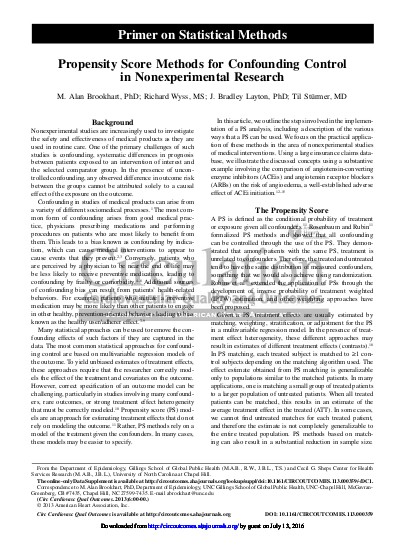
Nonexperimental studies are increasingly used to investigate the safety and effectiveness of medical products as they are used in routine care. One of the primary challenges of such studies is confounding, systematic differences in prognosis between patients exposed to an intervention of interest and the selected comparator group. In the presence of uncontrolled confounding, any observed difference in outcome risk between the groups cannot be attributed solely to a causal effect of the exposure on the outcome.